She/Her • 21 • Digital Camera Enjoyer • I eat SmartMedia cards like potato chips
Don't wanna be here? Send us removal request.
Text

Mature content? This is clearly a juvenile

Brown pelican chick By: W. Metzen From: Getting to Know Nature's Children: Pelicans 1985
188 notes
·
View notes
Text
they could never make me hate you

#ok well i hate them a little bit#their failure rate is pretty high#especially the higher capacity ones#digitaldreamwords
8 notes
·
View notes
Text

Olympus D-340R (1999). Found Photo, Date unknown.
1 note
·
View note
Text

Olympus C-2100UZ (2000)
2 notes
·
View notes
Text

Olympus C-4040 (2001)
1 note
·
View note
Text

Olympus C-4040 (2001)
1 note
·
View note
Photo
I'd recognize that strange chicken-egg-whisk hybrid anywhere...

She's whisked many an egg in her time


153 notes
·
View notes
Text

Will you discover Doug's Christmas Secret ...
1 note
·
View note
Text
113K notes
·
View notes
Text




losing my fucking mind over this subreddit
32K notes
·
View notes
Text

Golden Hour (2023)
Kodak DCS 420 (1994)
10 notes
·
View notes
Text
Sony Mavica FD-7 (1997)
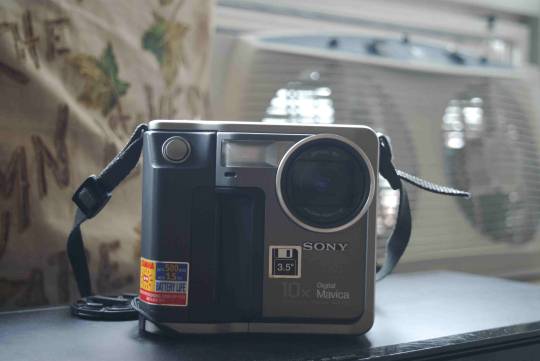
This is the Sony Digital Mavica FD-7, released in 1997!
Sony is probably more well known now for their line of professional mirrorless cameras, but back in the heyday of digital photography, Sony was doing some strange, strange things.
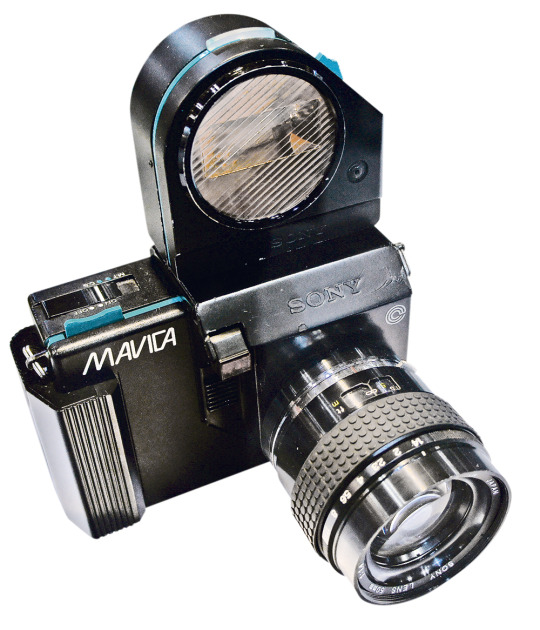
The history of Sony's ventures into digital photography has been covered extensively on the internet, so I won't go into it much, other than the quick facts. In 1981, the first product of theirs to bear the Mavica name was a prototype Still Video Camera from 1981. Still Video Cameras are a whole other can of worms as well (and one I really really want to get into when I inevitably come into possession of one). Mavica stood for MAgnetic VIdeo CAmera. The photos, which were just still frames taken from video were stored on these:
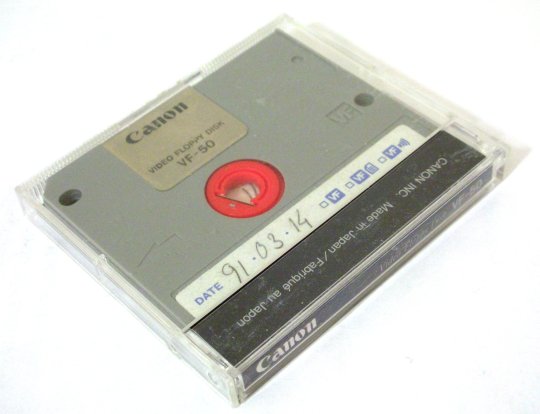
VFDs, or Video Floppy Disks. Again, this is a whole other beast when it comes to the history of digital photography. Sony manufactured a few of these Still Video Cameras under the Mavica line in the 1980s. Eventually this product line was discontinued, but Sony resurrected the Mavica name for a long-running series of floppy disk (and later CD) based cameras in the mid 1990s and 2000s.
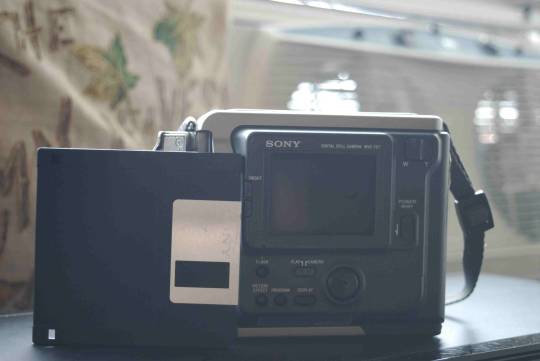
The FD-7 was part of the first run of Sony's Digital Mavicas, along with the FD-5, pictured below, which was the lower end model with a fixed focus lens.
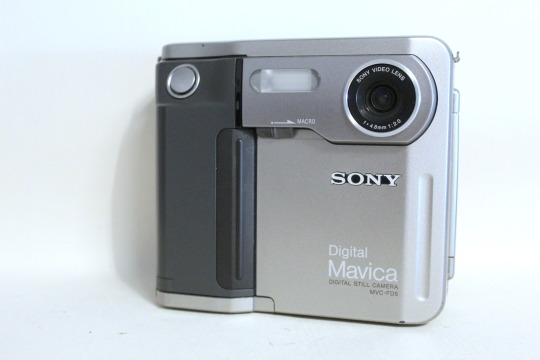
The FD-7 was the higher end model with a much larger lens, a 4.2-42mm f1.8, and has a 10x optical zoom. Both stored their images, as shown above, onto floppy disks.
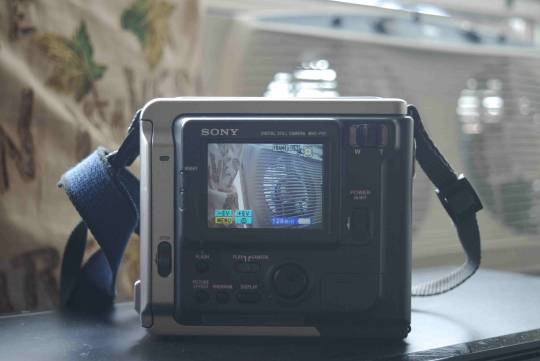
You could store about 40 or so images in the camera's Standard mode, and about 20 in Fine mode, which for the time and the storage medium was pretty respectable. Floppy disks were everywhere at the time, so there really wouldn't have been any issue in terms of running out of storage.
One other quirk of these cameras I'd like to address are the Field/Frame modes. The Mavicas are actually doing something sort of clever here. The image sensor inside is still one used for video.

If you look at this image I've taken, you can see there's an after-image left behind on it. This is a result of the camera's sensor. The Field/Frame option does...something...that I think reduces the effect (Honestly Clint from LGR's video on this is where you should go for the technical details https://www.youtube.com/watch?v=3Nu6C-Ci7_Q)
ANYWAY. With all of that out of the way, here are some of the shots I've taken! (As with a LOT of digital cameras from around this time, the FD-7 shoots in 640x480 resolution, with quality modes delineating the amount of compression the image is given. All of these shots were taken in Fine mode.)

(This camera has a very good macro mode, btw!)





And there you have it! Honestly, I may just forego the rating portion of these after the first one. I want my concluding thoughts to be more interesting than a bunch of numbers.
If you like the challenges shooting with a low resolution and on a non-standard memory format, pick one of these up! USB floppy drives can be found for really cheap, and you can just drag and drop them from the disks right on to your computer, no fiddling required. I will say though, as a warning, that this stuff is nearing 30 years old. I actually have two of the FD-7s because my first one failed and refuses to focus in any way. Floppy disks can also be a problem, as I've had certain ones fail to record images due to bad sectors.
Other than that, these cameras feel surprisingly good in the hands, despite their boxiness, and are generally just really fun cameras to use. I have some of the later Mavicas, and while their image quality is better, (with the caveat that you can store much less images per disk) the original has this charm to it. It was the first of a series of really odd cameras that feel alien compared to today's camera market. And just for that, I think it's so cool.
4 notes
·
View notes




